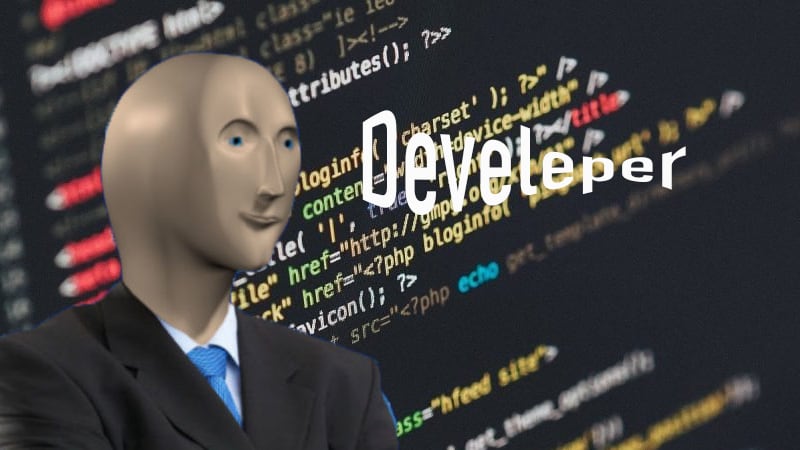The Complete Guide To Java -2023

Anas Khan
Posted on November 14, 2022

In this blog, I am going to give you the complete guide - a roadmap of the java programming language. If you are planning to become a Java developer or want to get started with java this blog will help you and
to accelerate your java career.
As a student java remains top in our college syllabus. Every Computer Engineering student has to learn java in some or another way round. Java isn’t a bad language or an extinct one. In fact, Java is widely used in many Multinational companies and many complicated apps were built upon java.
Learning java is challenging for sure but you can be good at java by learning the concepts properly and practicing daily (it’s very important). There’s a saying Rome wasn’t built in a day, so practice daily and be sure you will become an awesome java developer.
This Java Guide will be divided into three phases
1. Beginner Phase
2. Intermediate Phase
3. Advanced Phase
Let’s get started with the first phase for you to become a Java Developer
Beginner Phase:
If you are completely new to java programming or want to start your career with Java right away.
The first thing you have to do is to understand the core concept and features of java programming including:
- JVM/Bytecode - This covers how a java program gets compiled and works. You will learn the architecture of Java
Virtual Machine (JVM).
- Data Types, Methods Constructors- This covers the types of data types in java, methods, and how constructors work.
- Control and Conditional Statements- These includes the loops for example for loop, while loop, and do-while loop. Conditional statements i.e if-else, nested if-else, etc
- (Classes & Objects) and Inheritance - It is a very important topic in java because java is fully object-oriented and it supports classes and objects, you will be playing with them in your whole career. You have to understand how to create classes. And how inheritance gets implemented in java with its needs.
- Packages, Interfaces, and abstract classes- This also comes in OOP i.e Object Oriented Programming. It teaches you how java is implemented in real-life scenarios.
- Exception Handling- It is something that is very crucial for java developers. If you are developing a java application, you must know what exceptions that can come out in the program. It is not like an error in fact it is like unexpected conditions that may or may not occur in your program. You should know how to handle that exception properly.
- Generics and Collection Framework- You should know how to implement generic and it goes with the collection framework. It is like a collection of data structures that you can easily use in your daily programming. For that, you must have a knowledge of generics.
- File Handling- File handling covers how to create, open, read, write and update a file.
- MultiThreaded-programing- Nowadays there is a lot of CPUs that support multi-threaded programming and you should know how multi-threading works in java.
- Lamda Expression - Lamda expression is quite useful and it is used in various Enterprise applications. You must know the Lamda Expression and how it gets implemented in java.
- Debugging and Breakpoints- Every developer has to face this scenario, where the developer has to debug their code to find out the bugs in it. For that, you have to create a breakpoint in your code and you will able to find out where the problem exactly lies.
After completing the above topics and practicing java programming daily. You can say that you know Java and you should be proud of yourself. 😎
Tip: Try to make a mini project out of your learning which should include all of the topics. This will give you confidence that you are not just learning, you are also making something.
Intermediate Phase:
This phase is very important because it is a link between the Beginner phase and the Advanced phase.
- CRUD Functionalities- It is very useful and it gives you an understanding of how to add Create, Read, Update, and Delete in one application. How to connect the Backend database and you must use CRUD for that.
- JDBC+MySQL- JDBC helps our java project to connect to the database. It is also useful to write and execute SQL queries. MYSQL is simply a relational database that stores your data in a tabular format.
- Tomcat Server- For deploying the Enterprises application, you must know how to set up a Tomcat Server and its configuration.
- JSP- It is basically an HTML page with java in it. You will need to learn how to work with JSP and interact with the server.
- Servlets- Servlet is a class that helps you to handle requests, process them and reply back with a response. You should know how to implement the servlet properly.
- Java Beans- It is a named feature that can be accessed by the user of the object.
This covers the intermediate phase of java programming. If you have done the till phase it is not enough because in most of the companies you apply to, you will see they cover these two phases in a single line which is java basics and OOPs concept.
Don’t break your motivation after coming this long in your journey. Let’s get started with the Advanced Phase. ✌️
Advanced Phase
This phase is a very important phase, most developers will get a lot of struggle in this phase because this is advanced java. Topics mentioned here require you to dedicate yourself daily and you will surely be an awesome java developer.
- Spring Framework- It is a very important framework most of the big companies like amazon uses spring framework in their enterprise application.
- Spring MVC- It is a design pattern in which Model View Controller. It helps you to understand whatever code you are writing following this design pattern.
- Hibernate- It is again a very important framework. Since we studied (Classes & Objects) in the beginner phase your knowledge will apply here. Basically what hibernate does is it converts these java objects and maps them to relational databases.
- Apache Struts Framework- If you know Spring MVC so you can or cannot learn the struts framework but it is required in a lot of companies. Struts framework helps to implement it into Spring MVC and make enterprise applications.
Practice + Projects- After learning all these skills it will take a lot of time to master these skills. You have to make sure to practice and make projects for example CRUD App, and Dynamic websites that use the above concepts.
This way you can become a Java developer. After making some projects and you feel confident enough then apply for Java developer roles.
Remember:
Thank you for reading! All the best for your journey.

Posted on November 14, 2022
Join Our Newsletter. No Spam, Only the good stuff.
Sign up to receive the latest update from our blog.



